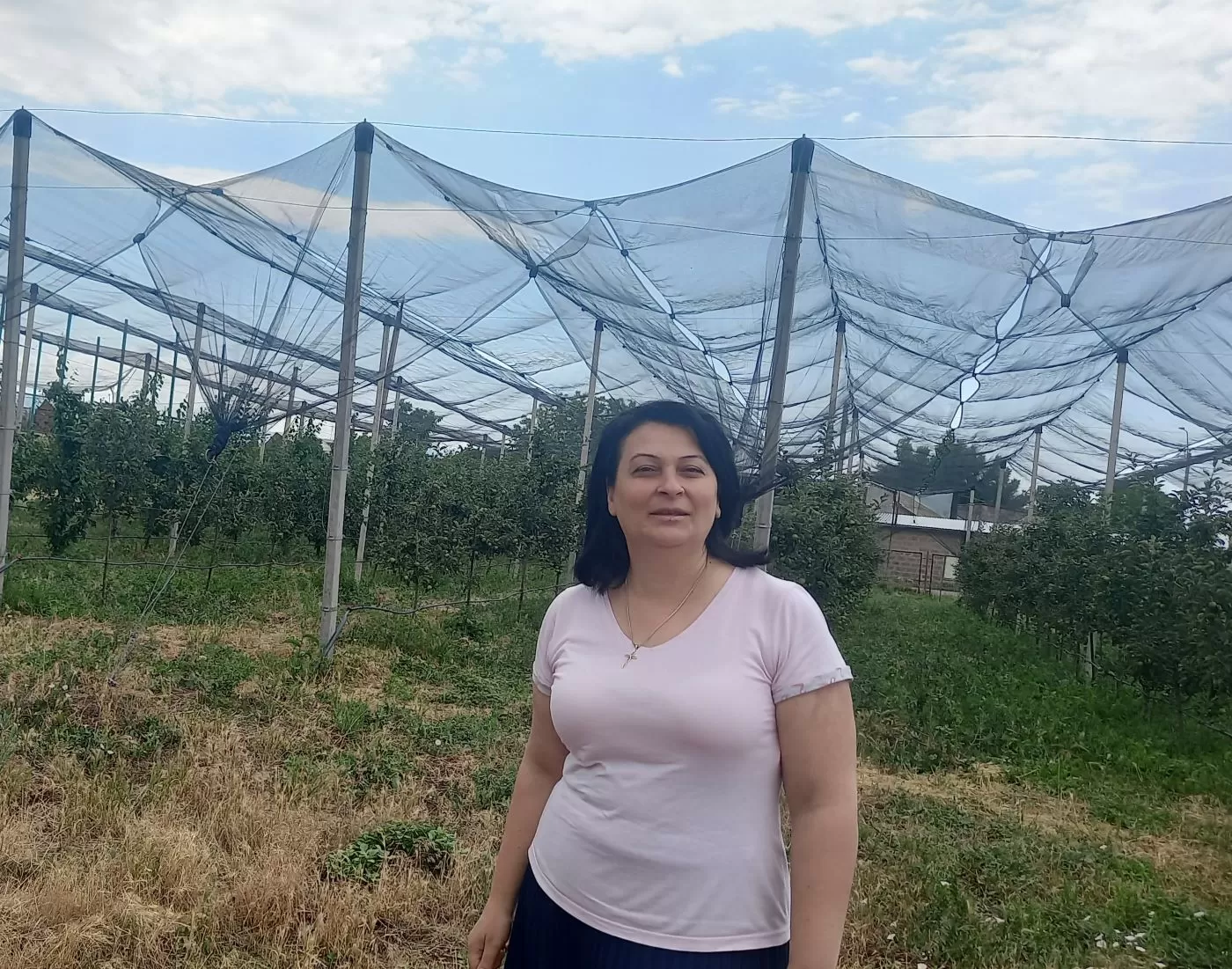
Secondary school No. 1 of Nor Geghi community of Kotayk Marz is one of the 44 schools of the republic, which are included in the program for development of innovative agricultural capacities, including the creation of intensive gardens, implemented with the support of the United Nations World Food Program (WFP). And although the community has always been known for its traditional gardens, a considerable area of the school was dedicated to the creation of an intensive garden where students can be involved in agricultural activities and learn about modern green technologies.
The work on the creation of an intensive garden began within the framework of the "Establishment of intensive fruit and berry gardens in areas near schools" implemented by the NGO "Green Lane" with the support of the UN World Food Program.
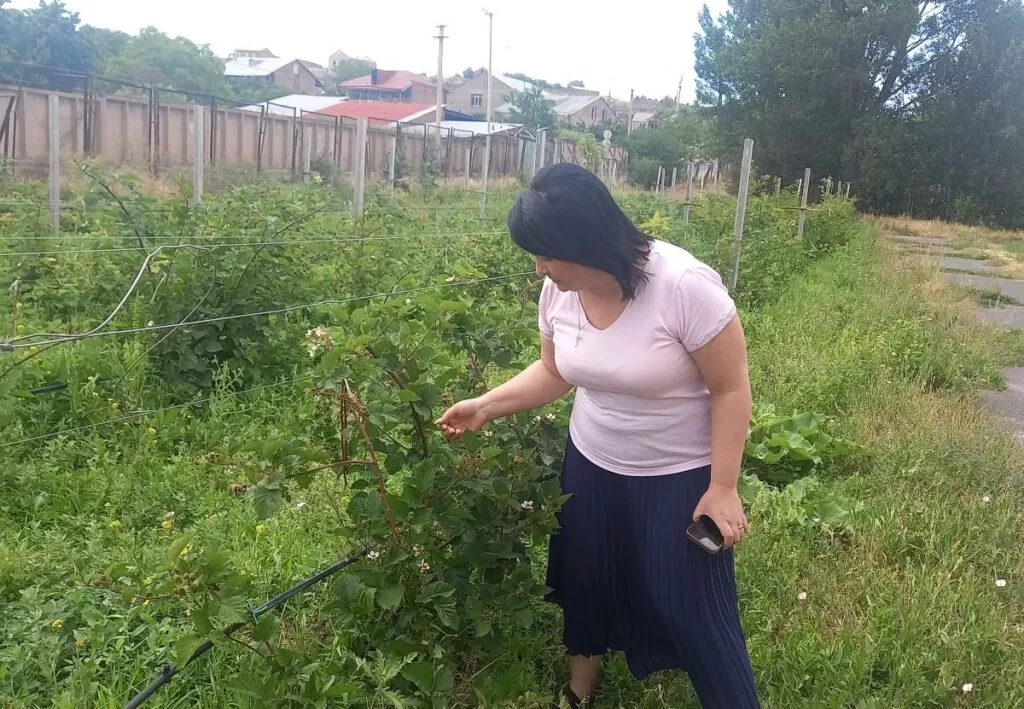
"You should have seen how interested the students were in studying the agricultural equipment provided to the school and the latest technologies: laying drip system pipelines, anti-hail nets and installing tanks for rainwater, after which they started planting apple, cherry, and plum seedlings. The results of the harvest in the first year were satisfactory and caused great enthusiasm among the students. They became skilled in agricultural work and were happy to receive ecologically clean food developed by their own efforts," says the principal of the school.
According to her, the intensive garden near the school unites students, teachers and community residents, it has become a treasure trove for the application of modern technologies in green agriculture and horticulture for all.
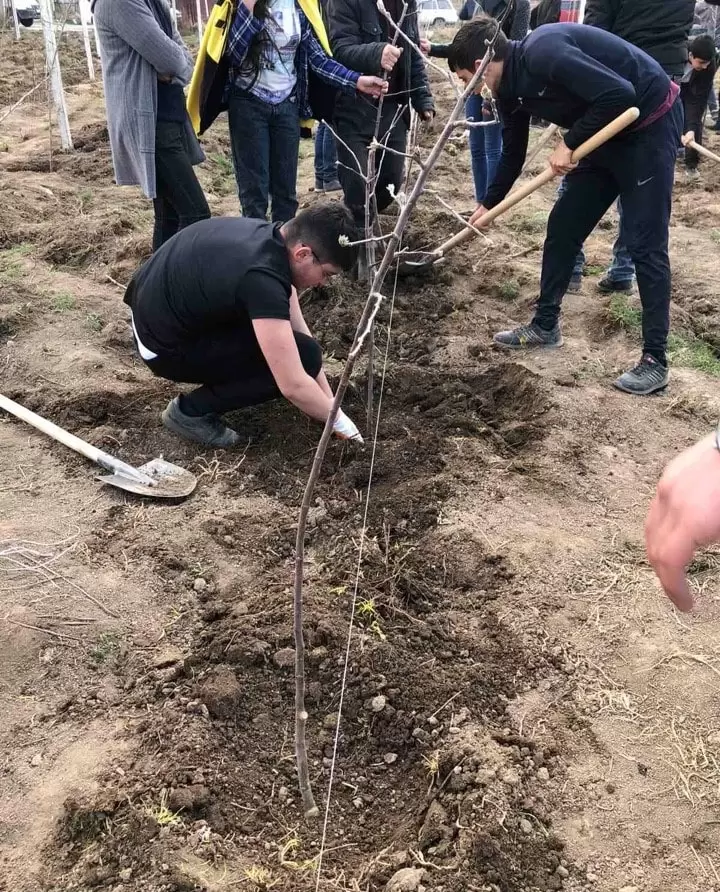
"An important thing is the installation of a solar station within the framework of the project, which contributes to a significant reduction of electricity consumption. As a result, we increased the number of saplings using the saved means. Rainwater collected in tanks installed on the school grounds completely replaces irrigation water, which is also a problem for the community. Among the knowledge acquired by the students about soil cultivation, fertilizing the soil with Californian worms instead of traditional pesticides is a novelty and it is a novelty for the population of the community as well," says Noyemi Babakhanyan.
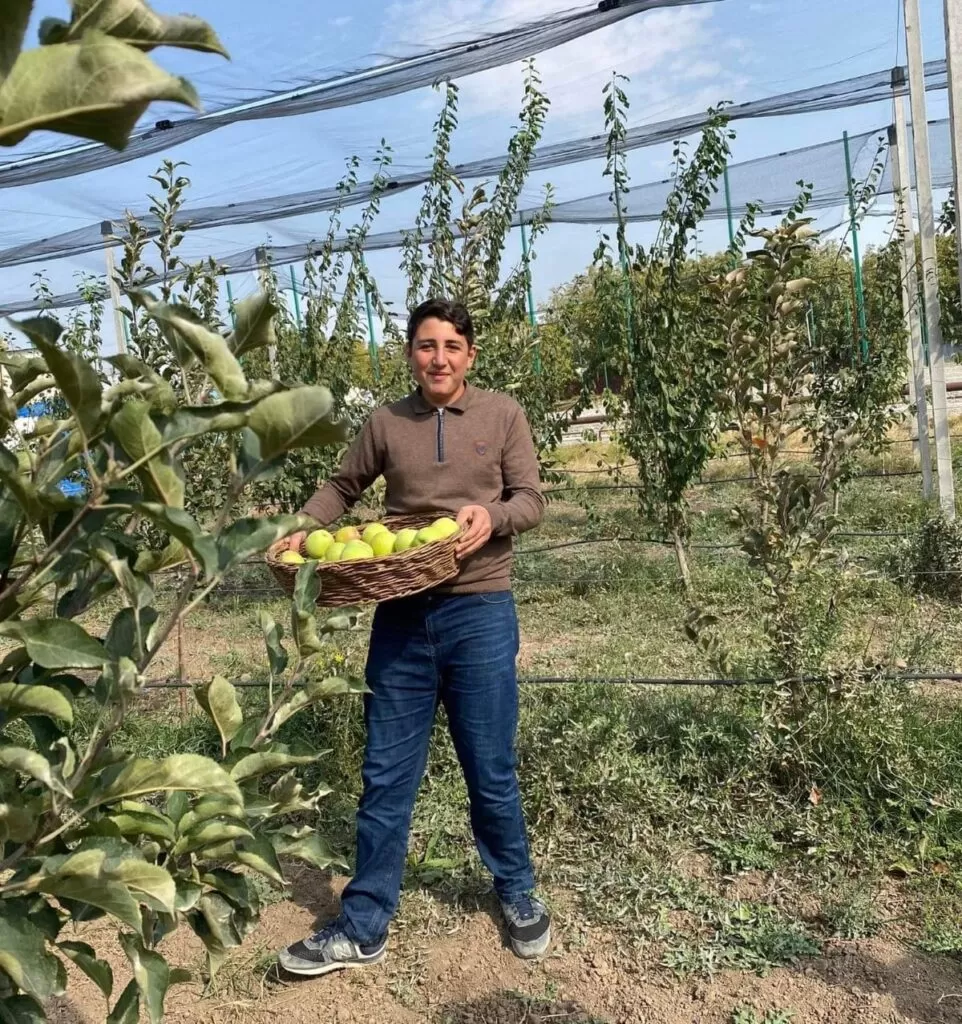
There are uncultivated areas in the land near the school, intended for cultivation of vegetable crops / cucumbers, tomatoes, peppers, broccoli/. For this, the school has the necessary multifunctional agricultural equipment: a lawnmower, small tractors, agricultural sprayers, outerwear, as well as appropriate methodological manuals.
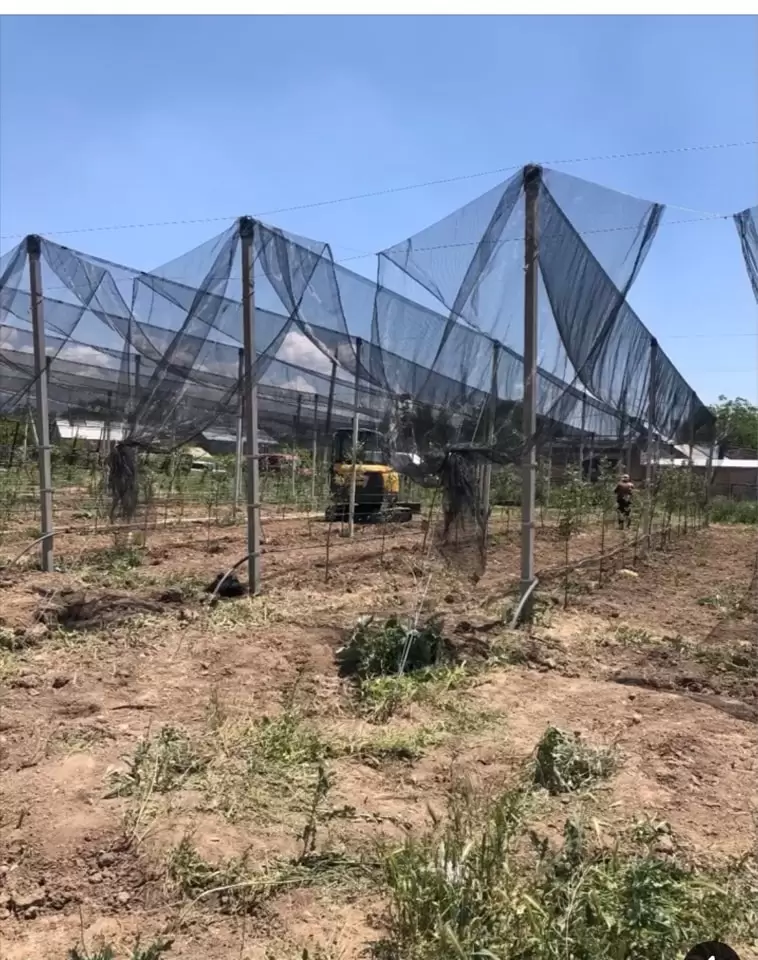
Noyemi Babakhanyan emphasizes the importance of involving students in modern agriculture in terms of their value system formation, choice of a future profession, creation of workplaces in the village and its development and prosperity. And it is not surprising that some of the graduates of the school receive secondary vocational education at the Nor Geghi State Agricultural College named after Academician G. Aghajanyan, and then continue their studies at the National Agrarian University of Armenia.
According to the principal, thanks to the diligence of the students and teaching staff, they will be able to expand the area of intensive gardens in the near future.
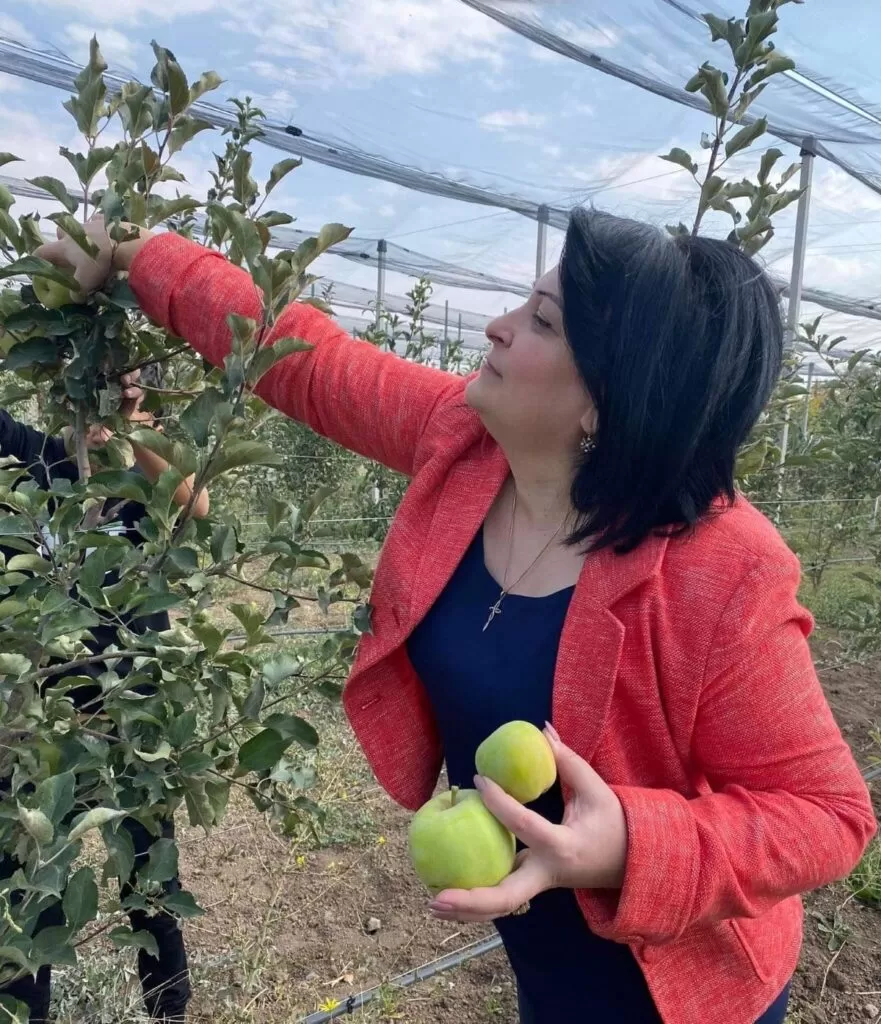
Full text in Armenian
The article was prepared with the support of the EU-GAIA project within the framework of the “Women in Green Agriculture” campaign, which aims to popularize the successful experience of women in the development of green agriculture in Armenia and to contribute to the expansion of women's participation in creating a competitive and efficient agriculture based on green technologies and science.

This publication was produced with the financial support of the European Union and the Austrian Development Cooperation. Its contents are the sole responsibility of the author and do not necessarily reflect the views of the European Union and the Austrian Development Agency.
© 2023 Austrian Development Agency. All rights reserved.
Licensed to the European Union under conditions.
About EU-GAIA project
The EU Green Agriculture Initiative (EU-GAIA) is currently the largest agricultural project in Armenia, funded by the European Union (EU) and co-financed by the Austrian Development Cooperation (ADC) ). The project is implemented by the Austrian Development Agency (ADA) and the United Nations Development Program (UNDP). The project government counterpart is the RA Ministry of Economy. The Project is aimed at facilitating the development of sustainable, inclusive, innovative and market-oriented agribusinesses․